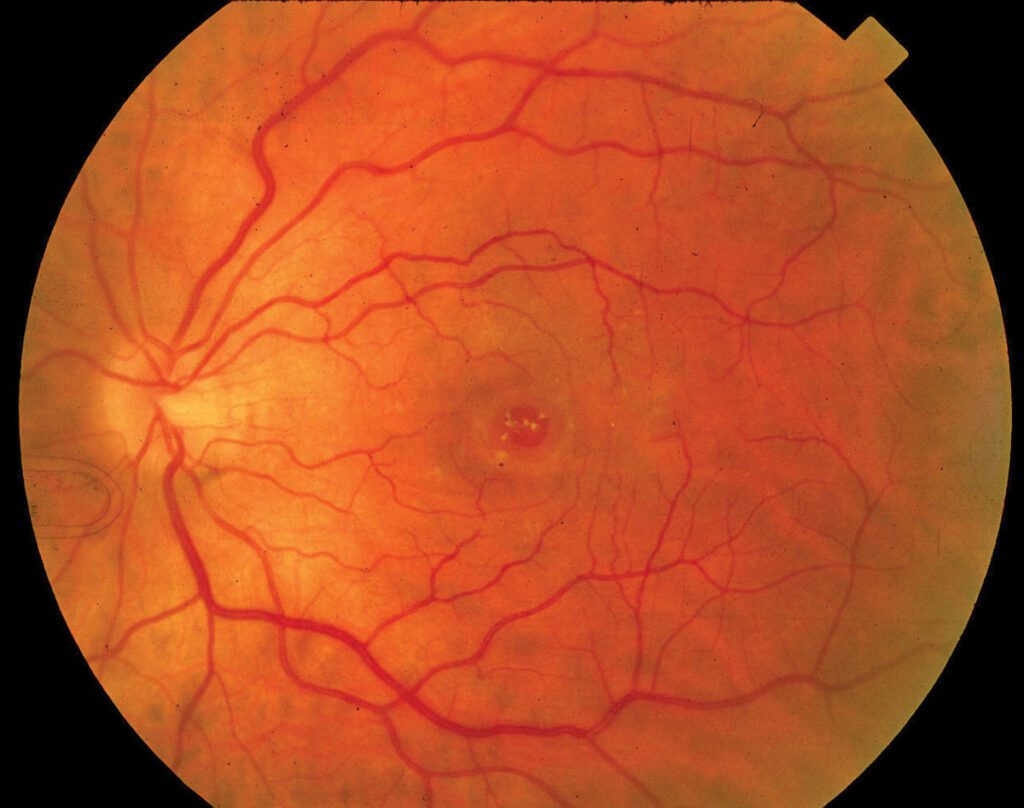
A macular hole is a condition that affects the central part of the retina, known as the macula, which is responsible for sharp, central vision. Treatment for a macular hole typically depends on the size and severity of the hole. Here are the main treatment options:
1. Observation: Small macular holes that are not causing significant vision problems might be monitored without immediate intervention. Sometimes, small holes can close on their own or not progress further.
2. Vitrectomy Surgery: This is the most common treatment for macular holes and is often recommended for larger or symptomatic holes. During a vitrectomy, the eye’s vitreous gel is removed and replaced with a gas bubble. This bubble helps to flatten the macular hole and allow it to heal. Over time, the body’s natural fluids will replace the gas bubble. The patient might need to maintain a specific head position (usually facedown) for a period of time to facilitate healing.
3. Gas Bubble Injection: In some cases, a gas bubble can be injected directly into the eye to help the macular hole close. This procedure might be combined with other techniques, such as face-down positioning, to ensure that the gas bubble is in the correct position to aid healing.
4. Peeling of the Internal Limiting Membrane (ILM): The surgeon might perform an additional step during vitrectomy surgery by gently removing the internal limiting membrane, a thin layer of tissue on the surface of the retina. This can improve the success rate of hole closure.
5. Silicone Oil: In some cases, a silicone oil bubble might be used instead of a gas bubble to close the macular hole. Unlike gas bubbles, silicone oil bubbles don’t disappear on their own and need to be surgically removed at a later time.
6. Postoperative Care: After surgery, it’s crucial to follow the surgeon’s instructions for postoperative care. This might include using prescribed eye drops, avoiding activities that can put strain on the eyes (like heavy lifting), and maintaining the recommended head positioning.
It’s important to note that the success of treatment for a macular hole depends on factors such as the size of the hole, the duration of the condition before treatment, and the overall health of the eye. Early intervention tends to lead to better outcomes, so if you suspect you have a macular hole or experience sudden changes in your central vision, it’s essential to consult an ophthalmologist promptly. They can perform the necessary examinations to diagnose the condition and recommend the most appropriate treatment plan tailored to your individual case.
For more eye-related queries, Consult Dr. Vaidya and know more information visit in our hospital at Dr. Vaidya Eye Hospital.
